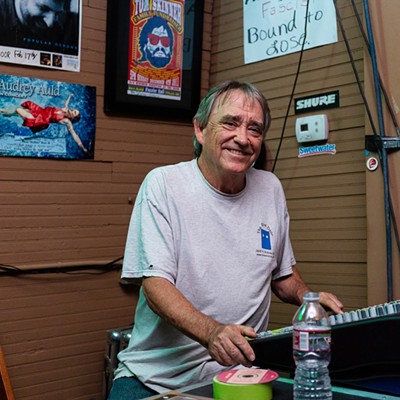
Keating had taken office three months before the April 19, 1995, bombing of the Alfred P. Murrah Federal Building that killed 168 people and injured more than 500 others. Then, on April 15 of this year, two brothers in Boston allegedly set off bombs at the Boston Marathon, killing three people and injuring more than 170 others.
In each case, the homemade bombs were detonated in highly congested public areas with the intention of killing and injuring as many innocent people as possible, Keating told Oklahoma Gazette.
“It is sad it (the Boston Marathon explosions) is an April event like ours,” he said. “April is such a wonderful month, and to have those two urban bombing incidents occur 18 years apart like that ...”
Timothy McVeigh, the Oklahoma City bomber, was a far-right extremist who sought revenge against the U.S. government for its handling of the 1993 siege on the Branch Davidian compound in Waco, Texas.
A motive for the Boston Marathon attack remains unknown. The family of the apparent perpetrators, 26-year-old
Tamerlan Tsarnaev and 19-year-old Dzhokar Tsarnaev, came to the U.S.
from the separatist Russian republic of Chechnya.
Reports suggest the brothers were motivated by radical Islamic ideology.
Chechnya, a predominantly Muslim territory in Russia, has long asserted
its independence after the collapse of the Soviet Union.
David
Cid, executive director of the Memorial Institute for the Prevention of
Terrorism (MIPT), said al-Qaida and like-minded Islamic terrorist
organizations usually make public statements taking credit for their
violence.
In this case, the suspects did not acknowledge their actions until a carjacking several days after the marathon.
“It’s
not unheard of for someone not to send a message claiming
responsibility, but it is unusual,” said Cid, a former FBI
counterterrorism official. “Typically, they have politically or socially
motivated agendas. It doesn’t serve a purpose to remain silent.”
On
a coincidental note, the Boston Police Department was the first major
law enforcement agency in the nation to undergo training from MIPT,
which was established after the Murrah bombing.
Sound advice
Keating said Boston officials are following a path similar to what OKC leaders did after the bombing.
“What
we did was focus on the spiritual,” he said. “Billy Graham came, and we
had families of the victims and survivors, the rescue workers and the
volunteers come together for a service that really connected the entire
community.”
Keating
said he’s been impressed with the steady leadership exhibited by Boston
Mayor Thomas Menino and Massachusetts Gov. Deval Patrick.
“They’ve
been very reassuring, and they’ve held the religious service. But one
thing we did was offer counseling, and not just for the short-term,”
Keating said. “We learned that people grieve in different ways and at
different times. Having that counseling available for victims’ families,
survivors and rescue personnel will be very important.”
Family
members of OKC bombing victims can attest to that. Among them is Aren
Almon Kok, whose 1-year-old daughter, Baylee, died in the Murrah
explosion. A photograph of the child cradled in the arms of a
firefighter became an iconic image of the tragedy.
“They
have a long road ahead of them. My heart goes out to those people,”
Almon Kok said. “I still miss Baylee every day. It’s always with you. At
first, you want answers, but after a while, you don’t care why. ... No
answer will be good enough.”

Kathy Sanders was forced to bury grandsons Chase and Colton Smith, two of 19 children killed in the Murrah blast.
“Burying
a child is so unnatural,” she said. “I probably would have killed
myself, but I couldn’t do that to my daughter and husband. I knew they
(Chase and Colton) were in heaven, but I wanted them here with me. The
most important thing is you will grieve and you will grieve deeply, but
you will survive.”
Sanders said the lives of those affected by the Boston bombing will be altered forever.
“The
life they had isn’t the life they’ll have now,” she said. “For me, even
going to the grocery store was difficult because I was used to pushing a
cart with a little boy in it.”
Hey! Read This:
- On the eve of the OKC Memorial Marathon, the Boston tragedy brings reminders of the past and lessons for an uncertain future
- Metro residents who ran in the Boston Marathon recall the horror of the bombings and that city’s subsequent show of resilience
- Security for the OKC Memorial Marathon is heightened in the aftermath of the Boston attacks
- The OKC bombing museum is halfway through a $15 million fundraising campaign to usher in a host of improvements
- After 17 years, a new book and a film pose questions about the Oklahoma City federal building bombing








